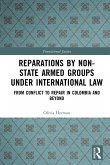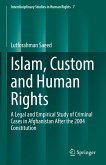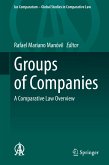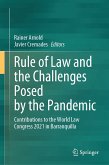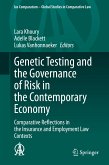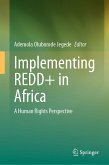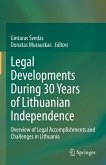Multinational corporate groups are important actors in today's global economy, with the power to impact the masses through their activities. National legal systems, which usually have no extraterritorial authority, remain insufficient to regulate the activities of multinational corporate groups, which operate worldwide, not only in the countries where the parent companies reside (home country), but also in countries where the subsidiaries operate (host countries). The mentioned lack of an effective legislation leads to an unjust imbalance - to the benefit of multinational corporate groups and to the detriment, especially, of involuntary creditors, such as tort victims of corporate activities, which predominantly concern human rights abuses and environmental violations. Against this backdrop, the book firstly assesses the position of multinational corporate groups in international law and then discusses potential reforms to corporate law that would allow for a multi-stakeholder approach. It analyses certain aspects of Turkish tort law that could potentially accommodate liability claims against the parent companies of multinational corporate groups for damage incurred due to their transnational subsidiaries' activities (referred to as 'foreign direct liability' in legal doctrine). To this end, the potential legal grounds of fault liability and strict liability are assessed under Turkish law, with a particular focus on the duty of care, in comparison with the corresponding case law in the UK and the Netherlands. Mandatory human rights due diligence is also analysed with a view to proposing a new regulation in Turkish law. Lastly, the aspects of foreign direct liability claims related to private international law are assessed in order to answer the questions of jurisdiction and applicable law within the scope of a comparative legal study.
Dieser Download kann aus rechtlichen Gründen nur mit Rechnungsadresse in A, B, BG, CY, CZ, D, DK, EW, E, FIN, F, GR, HR, H, IRL, I, LT, L, LR, M, NL, PL, P, R, S, SLO, SK ausgeliefert werden.



